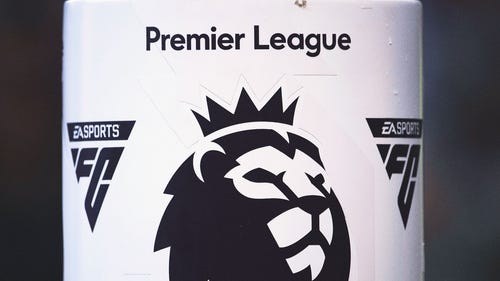
Chelsea chairman says inequalities are not bad for soccer
LONDON (AP) — Railing against attempts to make soccer more equal, Chelsea chairman Bruce Buck said Thursday that big teams should not be forced to join the "great unwashed" through new regulations.
UEFA has been exploring ways to improve the competitive balance, to close the divide between clubs across Europe to ensure competitions are not won by the same pool of leading sides.
But Buck warned European football's governing body that curbing the strength of the leading clubs would be damaging for the sport.
"In terms of competitive balance, which is always viewed in a negative way, I personally believe for the development of football, marquee clubs and marquee players are important," Buck said at Stamford Bridge. "It is important in developing fan base. It is important encouraging young people to engage in this sport and it also important in terms of the large clubs having the ability to put a lot of money into good causes which they do.
"So I am not, as a general proposition, in favor of dumbing down the large clubs in order to make all clubs the great unwashed. They have done that in the U.S. over the last 20 years and it has been to the detriment particularly of baseball ... I just don't think it works for the long term."
To slow down a widening gap between richer clubs and the rest, UEFA was inspired by Major League Baseball when recently floating the introduction of a "luxury tax." One model could see clubs paying a percentage of transfer spending beyond 100 million euros ($132 million).
"Clubs have to seek their natural position in the football order," Buck said at the Leaders' Sports Business Summit. "But I don't think we should assume that because every club is not equal it's bad."
Chelsea was able to become a power in Europe after the 2003 takeover by Russian billionaire Roman Abramovich led to heavy investment on players before Financial Fair Play rules were introduced by UEFA to curb such lavish spending. It allowed Chelsea to end its 50-year English title drought by winning the Premier League in 2005 and become European champion for the first time by triumphing in the 2012 Champions League final.
"There are 10 or 12 big clubs in Europe right now, and I think five, 10 years from now in round terms those 10 or 12 clubs will be the 12 big clubs," Buck said. "The mix is in terms of who is on top with respect to revenue. Who is on top with respect to performance and trophies, I think that's up for grabs."
It's harder for a team to rise through the ranks to become a champion, with Leicester's Premier League triumph in 2016 a rarity. Manchester United (13) Chelsea (five), Arsenal (three) and Manchester City (three) have won most of the titles since the Premier League was inaugurated in 1992.
"The dream in England is that if you are a supporter of a (fifth-tier) team is that someday you will win the Premier League," Buck said. "One of the minuses (of FFP) is that dream is now over. That is not possible with Financial Fair Play. What Chelsea did in 2003, what Man City did five years later (after being bought by a member of Abu Dhabi's royal family), that is virtually impossible to do under Financial Fair Play."


